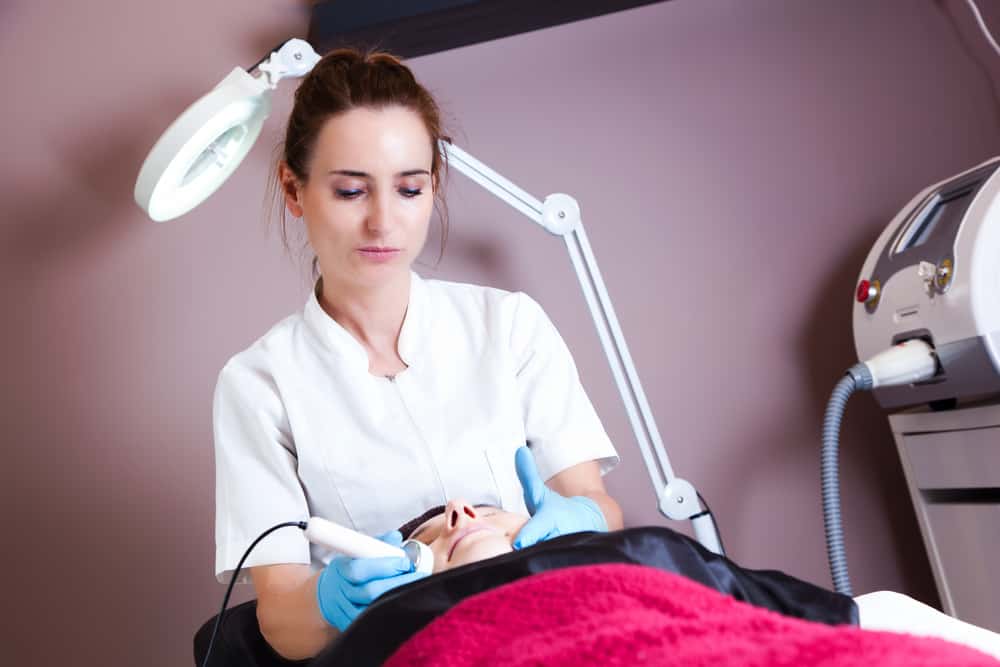How an oncology esthetician can help with your skin during cancer recovery
Of the 78 organs in the human body, your skin is your largest organ, and it reacts to anything you’re going through, most notably cancer and cancer treatments. Those undergoing cancer treatment develop skin sensitivity, dryness, breakouts, and discomfort due to itchy skin.
Cancer remedies like chemotherapy drugs and radiotherapy have some trying effects on the health of a patient’s skin, hair, and nails. Because of this, many cancer survivors report changes in body appearance and self-image due to the nature of the illness and its treatment. This holds for the treatment of different cancer and not skin cancer alone.
Since cancer and accompanying therapies often require a delicate approach, a conventional spa treatment will not properly address the skin and body issues encountered by those undergoing cancer treatments.
However, advancements in the field of oncology esthetics have provided estheticians with modified techniques to administer safe skincare treatment for clients recovering from cancer.
Who is an Oncology Esthetician?
Oncology is a medical branch that deals with studying, diagnosing, treating, and preventing tumors and cancer.
An oncologist is a medical practitioner qualified in the field of oncology. On the other hand, an esthetician is a trained professional that specializes in skin beautification and maintenance.
Therefore, an oncology esthetician is a clinical professional that focuses on the effects of cancer and cancer treatment on the skin and provides suitable measures to help improve symptoms and skin reactions in cancer patients.
Estheticians certified in this discipline have a unique skill set that qualifies them to provide skin care safely for people treating cancer. They understand the psychological implications of cancer patients’ body transformations and take an integrative approach to address these concerns individually.
Oncology estheticians are licensed practitioners same as skincare specialists and spa therapists, but you can distinguish them from other spa professionals by their specialized education and certification from accredited institutions. This education furthers a unique understanding of the requirements of cancer patients as it relates to skin management, beautification, and esthetics.
What does an Oncology Esthetician do?
An oncology esthetician is a clinical specialist trained in providing remedial skincare treatments and personalized regimens for cancer patients. They can recognize and address skin conditions relating to cancer and cancer therapy; however, diagnosing cancer and recommending treatment options remains that of a medical oncologist.
At The Facial Bar, Florida, our in-house specialist Karla Rodriguez, is a fully licensed clinical oncology esthetician with 19 years of success in her field. Karla offers safe and soothing spa treatments to pamper oncology patients while delivering enhanced skincare results.
How can an Oncology Esthetician help?
Oncology estheticians like Karla complement the work of other cancer specialists, such as medical and radiation oncologists. However, the esthetician takes a holistic view of cancer cases by focusing not just on the medical condition but how it affects the body and mind.
They create client-centered and customized skincare therapy based on each client’s specific needs to make them feel and look their best.
An oncology esthetic professional is your best bet because they are trained to be sensitive to the peculiar skin conditions affecting cancer survivors. They can also work closely with your medical oncologist to discover what skincare regimen would be ideal for you.
Among the skin care services an oncology esthetician provides are; body massages, hand and foot massages, lymphatic drainage massage, mani-pedis, facials, scalp treatments, acupressure, acupuncture, and reflexology.
All of these procedures are modified to reduce exposure to some skincare treatments that may cause side effects or adverse reactions to the client’s skin.
Oncology esthetic professionals are usually mindful of certain modifications and adjustments relating to recuperating cancer patients, and this may include:
- Moderations to the use of excessive heat pressure and friction.
- Limiting the use of peeling creams, scrubs, and chemical exfoliants.
- Avoiding the use of stimulating and irritating skin products.
- Customizing personalized home care regimens to help speed up healing.
- Altering massage techniques based on the location of the client’s surgical sites, active port, or edema.
In addition to skincare therapy, clinical oncology esthetic professionals may also recommend:
- Makeup to camouflage darkened skin areas resulting from chemotherapy.
- Hair fittings for recovering patients that have experienced hair loss
- Prosthetic bra fittings and areola tattooing for mastectomy patients
Benefits of seeing an Oncology Esthetician
Oncology estheticians are trained to understand cancer, its treatment, and its side effects. Other than the ease of communication and professional empathy, an oncology esthetic professional also shoulders the following responsibilities:
- Preparing non-invasive and valuable spa treatments customized for cancer clients.
- Sharing specialized knowledge about useful and affordable skin care products and ingredients.
- Performing screening and referring patients to a dermatologist when necessary for medical assessment and treatment.
- Recommending and administering beneficial skincare treatments based on the client’s skin condition and medical history.
- Respecting clients’ privacy and provide continual support after skin treatment.
Apart from the tailored cancer treatment plans, generally, seeing an esthetician can help;
- Boost your mood and alleviate mental stress associated with chemotherapy (chemo brain)
- Combat fatigue caused by cancer treatments
- Relax stiff muscles that result from prolonged cancer and its treatment.
Though there are many benefits to seeing an oncology esthetician, there are a few spa regulars you may want to avoid if you are still recovering, as they may interfere with your treatment or recovery process. They include;
- Chemicals in nail Polish
- Chlorine in swimming pools
- Heat from saunas and steam rooms
Conclusion
For cancer treatment to be considered comprehensive today, it needs to integrate a multidisciplinary approach involving medical, surgical, and radiation oncologists as well as oncology estheticians. While a medical oncologist might be responsible for improving the client’s overall health, an esthetician is tasked with improving a recovering cancer patient’s physical and psychological outlook.

